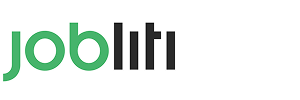Find Your Best-Fit Career With Smart Digital Job Quizzes

Find Your Dream Job With Quiz
Start the TestWhat Makes Digital Career Quizzes Worth Your Time
Career decisions are no longer guided solely by gut feelings or generic advice from acquaintances. Today’s most effective exploration begins with structured reflection, objective feedback, and evidence-based tools that translate self-knowledge into practical direction. A well-designed assessment can compress weeks of guesswork into an afternoon of discovery, surfacing strengths you’ve overlooked and matching them to roles you might never have considered. The outcome is clarity: a map that links your motivations and talents to job families, learning paths, and application strategies.
The best tools blend psychometrics, real market data, and plain-language recommendations to make next steps feel tangible. Many readers use an online job quiz midway through exploration to calibrate strengths against real roles, industry expectations, and daily task profiles. Rather than chasing trendy job titles, you can align opportunities with your core drivers, whether that means collaborative problem solving, independent analysis, or creativity under deadlines. This approach reduces career risk, shortens job searches, and produces better day-one fit.
- Get a neutral snapshot of interests, values, and skills without bias from friends or coworkers.
- Translate abstract traits into tangible job families, projects, and learning goals.
- Spot blind spots early, then craft a focused upskilling plan to address them.
- Reduce application spray-and-pray by targeting roles that match your wiring.
- Build talking points for interviews that sound authentic and specific.
How Modern Assessments Work and What They Measure
Behind the scenes, quality assessments rely on validated frameworks such as Holland’s RIASEC model, Big Five personality traits, or strengths inventories informed by industrial-organizational psychology. Questions are calibrated to detect consistent patterns rather than one-off preferences, often using adaptive item techniques that fine-tune difficulty as you respond. The result is an interpretable profile: top interests, complementary environments, and suggested role families. Clear language and concrete suggestions help you translate insights into courses, projects, and networking targets.
Budget-conscious explorers still have access to credible options that deliver strong directional value. If budget matters, a free online job quiz can still provide directional clarity while you evaluate whether to invest in premium diagnostics with deeper reporting and coaching add-ons. What you’re looking for is reliability, transparent methodology, and recommendations that connect to real labor-market trends rather than vague, feel-good labels.
| Dimension | What It Measures | Signals to Watch |
|---|---|---|
| Work Values | Autonomy, stability, altruism, impact, achievement | High autonomy suggests startups; high stability points to regulated industries |
| Cognitive Style | Analytical vs holistic thinking; detail vs big-picture focus | Analytical fits data roles; holistic aligns with product, strategy, and design |
| Interests (RIASEC) | Realistic, Investigative, Artistic, Social, Enterprising, Conventional | Top codes guide which role families feel engaging and sustainable |
| Soft Skills | Communication, empathy, adaptability, resilience | Gaps inform training plans, mentorship, and interview preparation |
- Prefer assessments that connect traits to day-in-the-life visuals for clarity.
- Look for examples of tasks, tools, and teams that match your top themes.
- Save your report; use it to refine resumes, portfolios, and outreach messages.
Benefits for Job Seekers, Students, and Career Changers
Whether you’re launching a career or rebooting one, the right diagnostic can compress timelines and boost confidence. Instead of scanning endless job boards, you’ll prioritize opportunities that fit your motivations, pace, and environment preferences. Students gain clarity on majors, certifications, and internships that produce compounding advantages. Career changers learn which past experiences transfer cleanly and where small skill bridges unlock higher-value roles. Hiring managers value candidates who demonstrate self-awareness, because they ramp faster and collaborate better.
Clarity also reduces decision fatigue by turning vague aspirations into concrete roadmaps with milestones you can measure. You might test-drive a job quiz online while mapping courses, volunteer projects, and practical deliverables to a cohesive narrative that resonates in interviews. This narrative becomes the thread through resumes, portfolios, and cover letters, improving response rates and ensuring each application reflects your authentic fit rather than a generic template.
- Cut exploration time by focusing on compatible role families and industries.
- Develop targeted learning plans that close the smallest gap for the biggest gain.
- Craft interview stories anchored in evidence from real projects and outcomes.
- Negotiate with confidence by knowing where you create outsized value.
- Build a repeatable process for future transitions as markets evolve.
Choosing a Reliable Platform and Interpreting Results
Not all assessments are created equal, so evaluation criteria matter. Look for transparent methodologies, norm groups that represent your region or industry, and clear documentation on privacy practices. Reviews should mention how actionable the recommendations feel, not just how entertaining the experience is. Strong platforms provide report depth, next steps, and links to training resources or job boards that mirror your profile. Even better, some tools integrate with resume builders or portfolio templates, turning insight into output quickly.
Start by sampling reputable tools, comparing the clarity of their reports and the specificity of role suggestions. Before signing up, scan reviews that mention online free job quizzes to gauge transparency, privacy practices, and feedback quality without committing budget. Treat your results as hypotheses, then validate them through informational interviews, shadowing, or small pilot projects that simulate real tasks. Insight plus action is the winning combination.
- Prioritize assessments that explain “why” behind each recommendation.
- Use informational interviews to confirm cultural and task fit.
- Run low-risk experiments, like weekend builds or freelance samples.
- Reassess after new experiences to track growth and recalibrate goals.
- Combine insights with labor-market data for salary, demand, and mobility.
FAQ: Common Questions Answered
How accurate are career quizzes compared to professional coaching?
Well-designed assessments provide a credible starting point by surfacing patterns that align with validated models. Coaching adds context, accountability, and tailored strategy, but many people see strong gains by combining a report with small experiments like projects, shadowing, and targeted conversations.
Can these tools help if I have multiple interests and no clear direction?
Yes, especially when they highlight clusters of roles that share common threads across your interests. Instead of forcing a single choice, a good report reveals families of work where diverse preferences can coexist, then suggests pilot steps so you can test options without heavy risk.
What should I do if results conflict with my past experience?
Treat the report as a hypothesis generator. Compare its themes to projects where you felt energized, then notice mismatches. Use short trials, certifications, or volunteer work to validate new directions while maintaining income, and update your story as evidence accumulates.
How can I use my results to improve applications and interviews?
Translate key themes into bullet points that emphasize strengths, then link them to measurable outcomes. Build a portfolio of concise artifacts that prove fit, and prepare anecdotes that demonstrate how your traits led to impact under real constraints like deadlines or budgets.
When should I retake an assessment?
Retest after meaningful changes such as new training, leadership responsibilities, or shifts in industry exposure. A fresh snapshot helps you recalibrate learning goals and keep your narrative aligned with the roles that now match your evolving skills and preferences.
